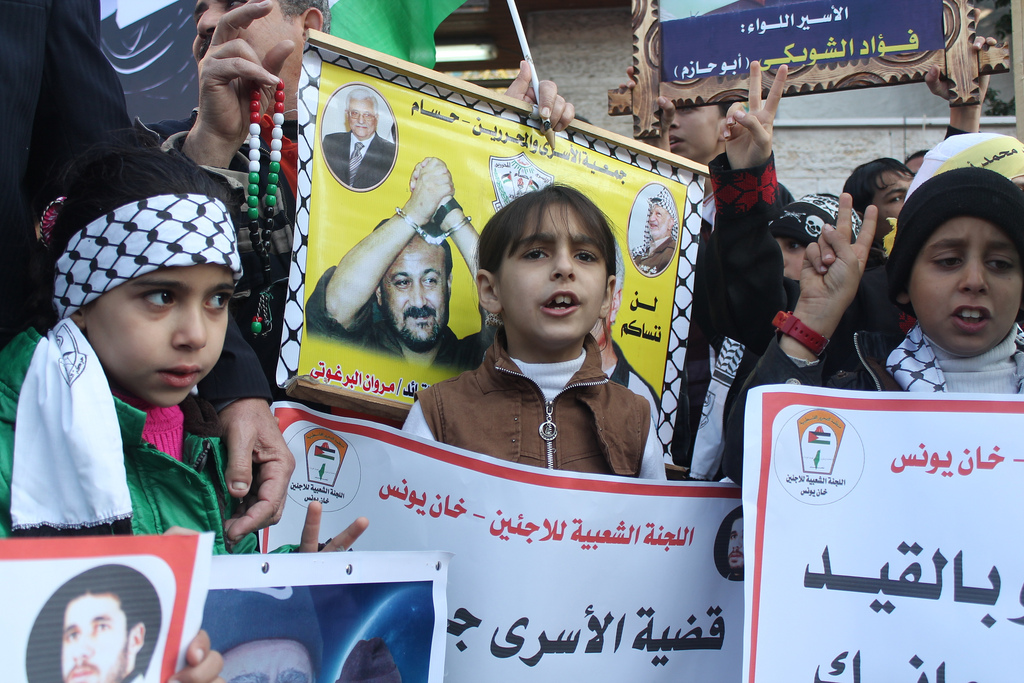Tag: Prisoner
-
Who Profits report: Corporations profit from Israeli prisons
26th January 2014 | Samidoun: Palestinian Prisoner Solidarity Network Who Profits released the following report on the involvement of Israeli and multinational corporations in the Israeli prison system: On December 2013, the Israel Prison Service (IPS) responded to a freedom of information request by Who Profits, which was submitted three months earlier, regarding twenty-two corporations that provide services…
-
Photos: Rally to save sick prisoner Ibrahim Bitar follows Gaza sit-in for detainees
20th January 2014 | International Solidarity Movement, Gaza Team | Gaza, Occupied Palestine Dozens of Palestinians joined a rally organized by the Popular Campaign to Save the Life of the Captive Patient Ibrahim Bitar outside the International Committee of the Red Cross’ Gaza office this morning. The gathering followed a weekly sit-in by families and supporters…
-
Gaza welcomes freed Palestinian detainees, rallies for others in illness and isolation
15th January 2014 | International Solidarity Movement, Marco Varasio | Gaza, Occupied Palestine Like every Monday morning, people gathered at International Committee of the Red Cross’ Gaza office to demonstrate in solidarity with the Palestinian prisoners in Israeli detention facilities. This week’s rally started with the chanting of slogans against the illegal detention of Palestinians…



